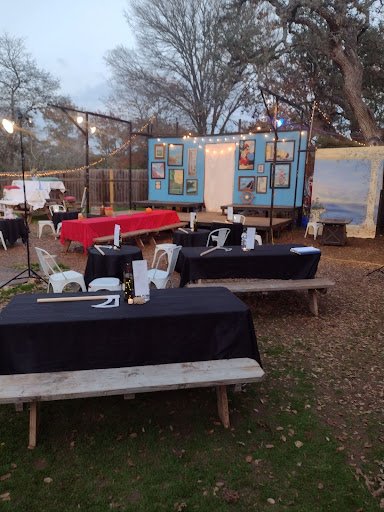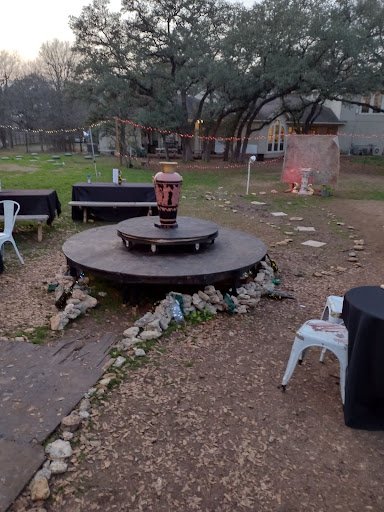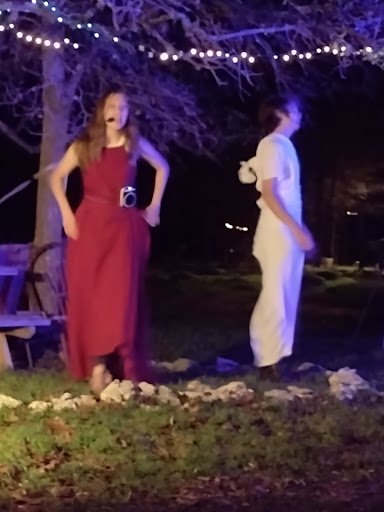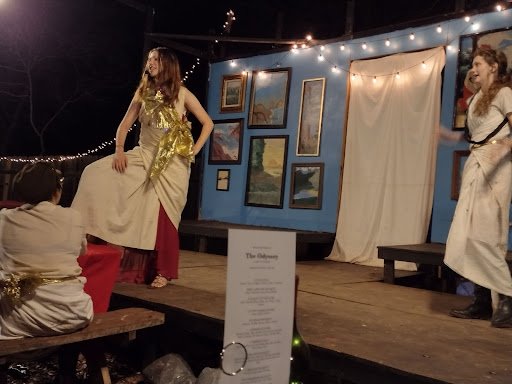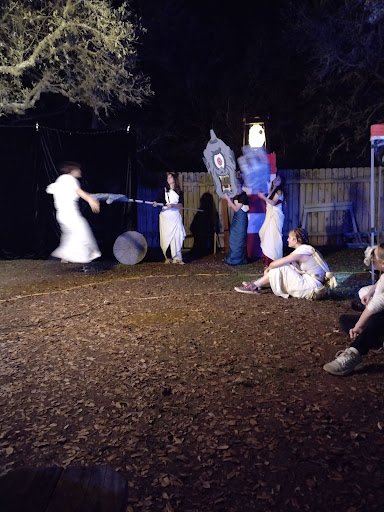Theatre from Scratch: Something Old Becomes Something New
PART 1 - WHAT WE DO
“So you know how Mary Poppins is a musical?” I said to a student. “And Mary Poppins is done at all these schools across the country and world? Imagine being the first person to be in Mary Poppins. Imagine that you were part of the cast that helped make it.
“That’s what we do here.”
For students coming from conventional schools and theatre programs, how we make theatre at Appamada (formerly Skybridge) can land somewhere between confusing to intimidating. It requires a mindshift from thinking about plays as ‘movies you pretend to be in’ to ‘a living, participatory art you create.’ Last semester, I finally, finally stumbled on a way to describe our process that revealed how exciting it can be.
For almost nine years, I’ve been writing plays for and with my young collaborators. I use improv, devising techniques, and what I call kinesthetic dramaturgy with whomever takes the class to build out the world of the play. From there, I write scripts that are bent around the people I have in the room. Even though I have a big old tool chest of activities I draw upon, every process is unique. I never want to make the same play more than once.
The result is that we’ve now produced 16 original mainstage productions. Most of these plays have gone on to be produced in schools and theatres across the country (and a couple in Canada).
Last semester, I knew that I wanted to write an adaptation. The previous adaptations we’d produced reinvented the stories, like our LGBTQ+ reimagination of Romeo and Juliet for middle school. This time around, I wanted to hew close to the original storylines - a remodel instead of a tear-down. We wouldn’t be creating stories and characters from scratch, but we would be creating our versions of stories and characters.
PART 2 - THE PROCESS
With our starting point defined, I brought in a few ideas and gathered more from the students. Through a few days of devising, it became clear:
The acting crew was in a goofball mood. They needed something that could handle slapstick. Something flavored with commedia dell arte.
We needed something where they could go big with their bodies. Most of these actors had previously been in the serious middle school production; not only did they have the skills to express themselves fully with their bodies, they were itching to make big comedy.
We needed something that we could do outdoors - something that would use the space like crazy.
The Odyssey became a clear frontrunner. It's one of the oldest stories on the planet, and it’s been adapted and repurposed so much that it was robust enough to withstand our monkeying around with the tone.
We set about building the play.
Improv from basic plot points would start the process. I’d bring in text from an excellent translation, have an actor read it, then have her recreate whatever she remembered from it. We’d reimagine Greek Gods. Chapter by chapter we worked. I brought in my own pages, and the actors started to cast themselves. Auditions made sense.
PART 3 - THE PRODUCTION
As we moved into the Production, students designed and built the set. The Theatre Tech class led the efforts, but a majority of the work occurred outside of the class time as our Master Carpenter organized a large group of student volunteers to paint set pieces, build paper machê rocks, and do a plethora of other design projects. She put everything into building a beautiful set, and the final product represents her vision and the labor of well over a dozen students.
Our costume designer made miracles happen during tech week, we added Adam the math teacher as a special cameo in the role of Poseidon, brought in our understudies and sound operator, and hoped the weather would be agreeable. Once again, we managed to dodge the worst of the weather, but we certainly struggled with mud management during the week of the performances. And then, under the evening stars, we reimagined the story of The Odyssey. I have stopped worrying about audience numbers, but it was clear we’d had the best attendance of any Skybridge/Appamada show, save the remote show when we were online two years ago. The final battle at the end, an important part of the legend, was intense; we shattered numerous plastic swords.
Because the actors are with me while I write the play, they gain a sense of collaboration and artistic freedom of expression when we perform it. While I put guardrails on their choices - a fight must be performed exactly the same way every night - many moments are as much a surprise to me as they are to the audience. For example, I never knew exactly what the actor playing Old Man Bernie would wear on a given night, and our clownish ensemble of sailors would add quips and jabs that would constantly surprise me.
With eleven people playing approximately 40-50 characters, you’d think they would not be able to inhabit their characters, but instead would don costumes to tell the story of who they were. And yet, as they performed, I witnessed a deepening of their characters. One actor moved some of our audience to tears when their character cries out in the underworld.
CODA - WHAT’S NEXT?
What’s next for the Theatre Department? I’m afraid to answer that question, I have to be a bit evasive. We’re now working on the show for the Middle School students, and all I will say is that it’s a literal mystery.
As for the script of The Odyssey, Montana Rep has commissioned me to turn it into a one-act play for a touring production next fall. While Montana Rep doesn’t have the platform that the Disney Corporation has, I am delighted that some of what we started here at Appamada will reach thousands of young people in Big Sky Country.
The Mary Poppins analogy already fits.



